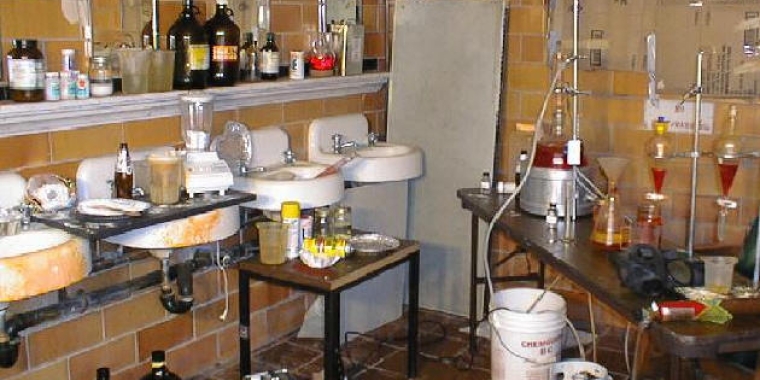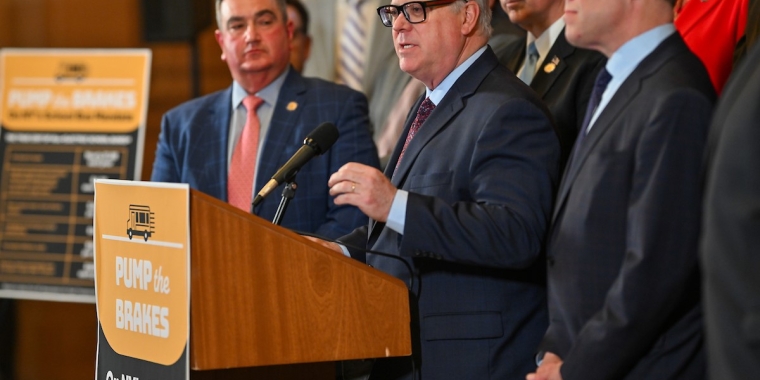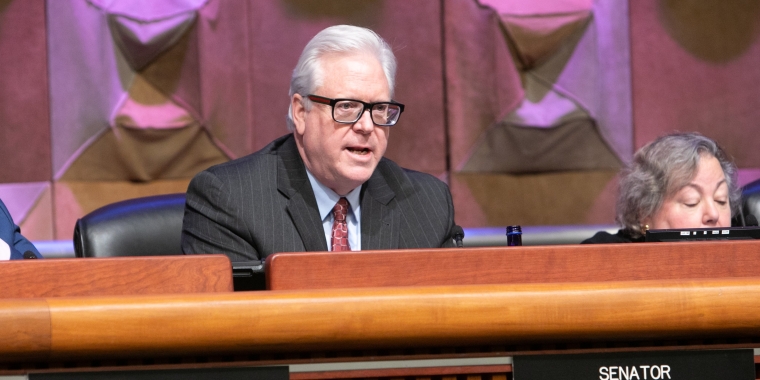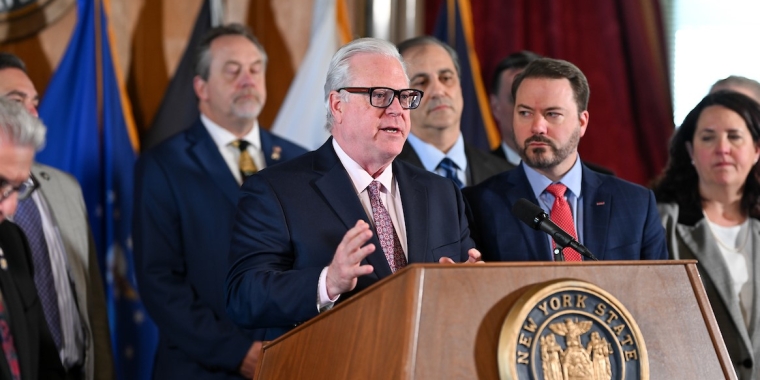
Senate approves anti-meth legislation co-sponsored by O'Mara, targets meth labs
Thomas F. O'Mara
June 13, 2013
-
ISSUE:
- Controlled Substances

Albany, N.Y., June 13—The New York State Senate today approved legislation co-sponsored by Senator Tom O’Mara (R-C, Big Flats) to enhance the ability of local police and district attorneys to track and prosecute violations of restrictions on over-the-counter sales of cold medications that are key ingredients used in the manufacturing of methamphetamine.
O’Mara, noting the dramatic rise in meth-related arrests and other incidents across the Southern Tier and Finger Lakes regions over the past year, including the discovery of three meth labs in Chemung County during the past week alone, said that the legislation targets the manufacturing of the dangerous and highly addictive drug.
“This legislation targets meth manufacturers and it’s an important part of what must be a broader and ongoing effort to deter, prosecute and punish meth crimes, as well as raise public awareness of the danger," said O’Mara.
Earlier this year, the Senate also approved legislation O’Mara sponsors (S.3639) to further outlaw the operation of meth labs by increasing the criminal penalties for the possession of meth manufacturing material and the unlawful manufacture of meth, implementing a series of increasingly severe felony offenses.
“We need to send a strong message that we’re not going to tolerate the operation of meth labs. These labs pose unacceptable risks to our neighborhoods, threaten the safety of police officers and first responders, and burden local systems of health care, criminal justice and social services,” said O’Mara. “Our laws need to keep pace with the goal of putting meth manufacturers out of business in New York State.”
According to a 2009 report from the Rand Corporation, the economic cost of meth use in the United States reached nearly $24 billion in 2005 and could go as high as $48 billion.
If enacted into law, the measure approved by the Senate today (S.4652) would, in state law, limit the sale of cold medicines containing pseudoephedrine to behind the counter, limit the amount of pseudoephedrine that an individual can purchase each month, and require that an individual present photo identification to purchase products containing pseudoephedrine.
A federal law enacted eight years ago, the Combat Methamphetamine Epidemic Act of 2005 (CMEA), already regulates retail over-the-counter sales of these products because of their use to manufacture meth. But while the CMEA has been helpful to law enforcement when investigating persons suspected of manufacturing meth, since no similar provisions exist directly in state law, local police and district attorneys are limited in their ability to fully pursue violations of purchase limits.
The U.S. Department of Justice has reported that states that have enacted similar or more restrictive retail regulations have seen a dramatic drop in the operation of small clandestine meth labs. Specific provisions of S.4652 would:
> limit over-the-counter sales to packages containing not more than 3.6 grams of one or more methamphetamine precursor drugs, not to exceed 9 grams within a 30-day period;
> require that all packages of drugs be displayed behind a checkout counter and only be sold by a licensed pharmacist, registered pharmacy technician, or pharmacy clerk;
> require purchasers to present a valid, government-issued photo ID and sign a written logbook that will be maintained by the retailer and be open to inspection by law enforcement; and
> require retailers, before completing a sale, to electronically submit the required information to the National Precursor Log Exchange (NPLEx) administered by the National Association of Drug Diversion Investigators (NADDI).
The NPLEx system is fully funded by the Consumer Healthcare Products Association (CHPA), a member-based organization of manufacturers and distributors of non-prescription, over-the-counter medicine and supplements. O’Mara noted that under the approved legislation retailers are only required to participate as long as the system is provided free of charge.
The legislation has bipartisan support in the Legislature. It’s sponsored in the Assembly by Assemblyman Steven Cymbrowitz (D-Brooklyn), who chairs the Assembly Committee on Alcoholism and Drug Abuse, and is currently in the Consumer Affairs and Protection Committee.
Share this Article or Press Release
Newsroom
Go to Newsroom


